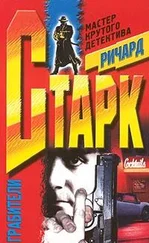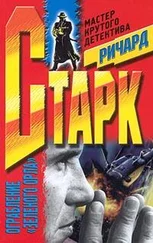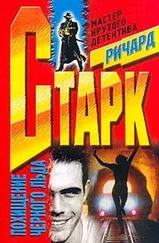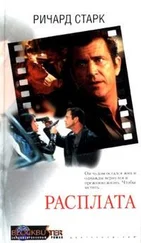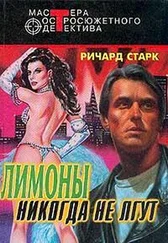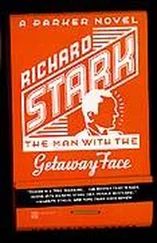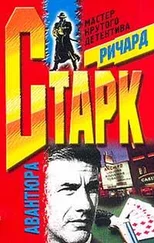He wasn’t carrying tonight and was dressed in dark but casual clothing and carried Parmitt’s identification. If he were to have a confrontation at all tonight, it would be with cops or private security, and with either one a gun would be more of a problem than a help.
He had tried to count the number of estates down from Melander’s, driving here, and now he tried again to count, walking north, but wasn’t sure he’d seen them all in either direction. When he came to the one he thought was probably Melander’s, it showed toward the sea a seven-foot-high pale concrete wall. In the middle of the wall was a fairly narrow opening, in which a wrought-iron gate stood shut and locked, with concrete steps behind it leading upward, flanked by walls of more concrete.
At the northern edge of the wall, it met the next property’s barrier, which was sea grape entwined with chain-link fence, stretching even higher than the neighboring wall. It looked to Parker as though the people who’d built the Melander place, if this was the Melander place, had put up this wall along the beach, and sidewalls back, then filled in behind it to make a high terrace at the same level as the road out front. Instead of that, the people next door had left the slope of the land as it was, down toward the sea, and merely fenced it.
Chain-link fence is a ladder, even when encumbered with sea grape. Seeing only a few lights in the house behind the fence, Parker climbed it at the corner, moving slowly, not wanting to make a lot of noise and also not wanting to leave a trail for Melander and the others to notice tomorrow.
When he was a few feet off the ground, he could see over the top of the wall, and it was lawn at that upper level, stretching back to the house. A few lights glowed inside the house, but there was no sound, no movement. An ornamental wrought-iron fence was fixed along the top of the wall, waist-high, and was most likely there to keep guests from falling off the lawn onto the sand seven feet below.
Parker stepped over the fence onto the ground above and behind the wall, and crouched there, waiting for a response. He knew the kind of security this sort of place could have, but he doubted Melander and Carlson and Ross were keeping it up; they weren’t the type. Still, it would be better to be cautious, especially if he’d counted wrong and this wasn’t their place after all.
What he waited for now was a motion sensor. That would be the first line of defense for these estates, and it should react to his presence as soon as he was on the property. If this house had such a thing, it would not only sound alarms, it would most likely also switch on floodlights around the exterior of the house, because the residents would be less interested in capturing anybody than in repelling them. If anything happened now, Parker would go over the wrought-iron fence, jump to the sand below, and move south, back toward the car.
But nothing happened. He stood there, waiting, listening, and looked around. The ground where he stood had once been lawn, but hadn’t been cared for in a long time; ocean air had killed it, leaving hard crumbly earth. So this was probably the right house.
It loomed ahead of him, pale in the starlight, centered on its property, with broad open swaths that had been lawn on both sides. Screens of tall ficus along both sides blocked any sight of the neighbors, but the ficus wasn’t being cared for; instead of the smooth wall-like appearance the professional gardeners would give them, the lines of trees had a messy, shaggy, unshaven look.
After a long minute, Parker moved forward toward the house. It looked as though only two lights were burning in there, one upstairs and one down; almost a guarantee that nobody was home. The lights were dim, amber, deep in the house, but they showed the rectangles of windows and glass doors.
Lawn gave way to stone patio closer to the house. There was no furniture, and sand scraped underfoot. Ahead, a line of glass doors like a theater entrance showed a large dim room. Parker stepped close to the glass to look in.
The light in there came through a broad doorway at the far end. This had once been the main public room of the house, but now there was nothing in it but a piano, pushed at an angle into a far corner, with no bench or stool in front of it.
The doors were locked; naturally. Would the alarm system be functioning, and would it connect with the local police station? Parker didn’t think Melander and the others would want police coming around, not for any reason, but there was no need to be hasty or careless.
He stepped back to the outer edge of the patio to look at the second floor. There was a setback up there, and a terrace. And where the house was not glass it was large rectangular blocks of pale stone; not much harder to climb than a chain-link fence.
Parker went to the right rear corner of the building and climbed the stones to the second-floor terrace. Here there were signs of occupancy: three cheap chrome and strap chaises, an upside-down liquor carton used as a table, an empty beer bottle standing on the floor near one of the chaises.
Glass doors led to three rooms up here. The center one had been a library and television room, but was now stripped, the shelves bare. Beyond its interior open door he could see the second-floor light source: a chandelier at the head of a flight of stairs.
The two side doors led to what had been and still were bedrooms, though now very simply furnished with nothing but mattresses. These doors were also locked, but the locks were a joke. Parker opened the one to the bedroom on the right, then stepped back to the outer edge of the terrace to wait for a response.
Nothing. No lights came on, no alarm sounded. Two minutes, three minutes, and no sound of police sirens headed this way. The door he’d opened hung ajar.
Parker crossed the terrace and entered the house. He closed the door behind himself.
It didn’t take long to search the place. There were fifteen or sixteen rooms, but Melander and Carlson and Ross were only using five: three bedrooms upstairs, the kitchen and dining room downstairs. They were getting along with a minimal amount of furniture.
And they weren’t here. The refrigerator was switched on, but it contained only half a dozen beer bottles, nothing perishable. There was almost no clothing in the bedrooms. There were no towels hanging in any of the bathrooms, though a stack of folded towels was on the floor at the head of the central staircase, as though they’d just come back from a laundry.
So they’d moved in here, they’d established the place, and then they’d gone away. They wouldn’t come back until it was time for the heist. Parker could make his own presence here, be waiting for them.
He found two alarm systems, the main one with its control pad by the door from the attached garage, and a supplemental one with a control box in a closet near the front door. Both were switched off. Parker rewired them so that, if they were armed, they would seem to be working but were not.
He went out the front door, leaving it open. He studied the grounds, then went over to look into the Dumpster, which was the largest size, big as a long-haul truck. It was a third full of trash: broken chairs, mirrors, wadded mounds of curtains, things the previous owners had not wanted to take with them. There was no construction debris, though, from the road, this big container would make it look as though construction or reconstruction had to be going on.
Back in the house, he shut the front door and went to the garage, big enough to hold three cars but now standing empty, except for a metal footlocker in a rear corner. The footlocker seemed strange, and was padlocked. Parker crossed to it and studied the padlock, which was new and serious. He lifted one end of the footlocker, and it was very heavy; something metal slid inside there.
Читать дальше
![Ричард Старк Flashfire [= Parker] обложка книги](/books/420691/richard-stark-flashfire-parker-cover.webp)
